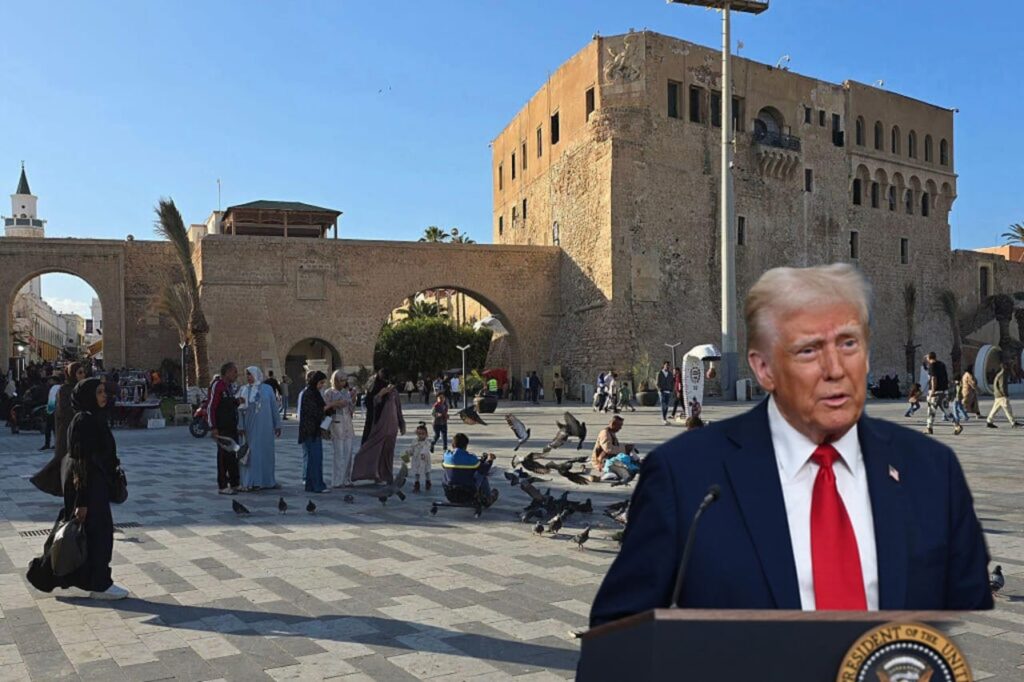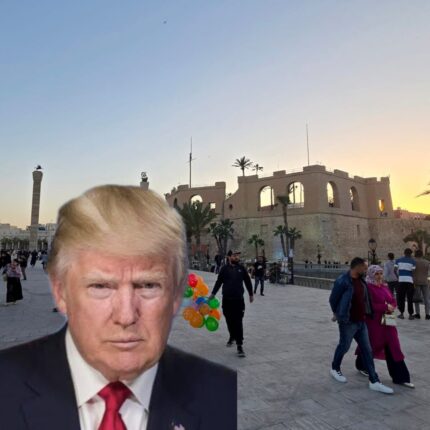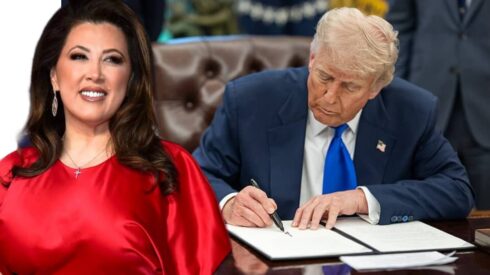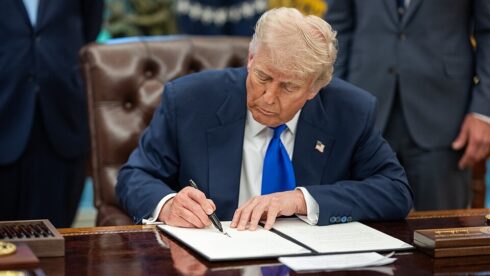The Trump administration is reportedly preparing to expand its deportation campaign to include Libya, a country wracked by years of civil war and instability. According to two U.S. officials who spoke to opitanglobamedia News on condition of anonymity, the deportations could commence as early as this week and may be operated by the U.S. military.
The move marks a dramatic escalation in the Trump administration’s immigration policy, raising alarm among human rights advocates and immigration experts. Libya, which remains divided between rival factions and plagued by violence, has long been criticized for its treatment of migrants, who often find themselves trapped in inhumane detention centers or subjected to abuse by armed groups.
A Dangerous Destination: Libya’s Ongoing Conflict and Human Rights Record
Libya has been engulfed in political and armed turmoil since the 2011 civil war that toppled longtime leader Muammar Gaddafi. The country remains split between a United Nations-backed government in Tripoli in the west and forces loyal to strongman Khalifa Haftar in the east. This persistent instability has turned Libya into both a battleground and a major transit route for migrants attempting the perilous Mediterranean crossing to Europe.
Adding to concerns, the U.S. State Department maintains a Level 4 “Do Not Travel” advisory for Libya, citing threats of terrorism, kidnapping, armed conflict, and unexploded landmines. Human rights organizations and U.S. officials alike have documented widespread abuses in Libya’s detention centers, including reports of torture, sexual violence, and lack of due process for detained migrants. Deporting individuals to such conditions, critics argue, could amount to knowingly placing them in harm’s way.
Uncertainty Over Who Will Be Deported and Libya’s Role

It remains unclear exactly who would be subject to deportation to Libya under the Trump administration’s plan. Officials have not specified whether the policy would target migrants from Libya itself or individuals from third countries who transited through Libya on their way to the U.S. Equally uncertain is whether Libyan authorities would accept deportees and what treatment they would face upon arrival.
The lack of clarity has heightened fears among immigration advocates, who warn that deportees could be detained or abused by local militias or authorities. Given Libya’s fractured political landscape, there is also concern that deported individuals could be caught in the crossfire of ongoing armed conflicts or become pawns in rival power struggles.
A Broader Strategy by Trump administration: Expanding Deportation Deals Globally
The proposed deportations to Libya are part of a broader strategy by the Trump administration to deter migration by forging deportation agreements with countries beyond migrants’ nations of origin. In recent months, the U.S. has secured deals with several Latin American countries, including Costa Rica and Panama, to accept third-country nationals deported from the U.S. The Trump administration has also deported Venezuelan nationals to El Salvador, despite concerns about their safety in the Central American country’s notorious prisons.
Beyond Latin America, U.S. officials have approached a range of countries across Africa and Europe to negotiate similar agreements. According to internal documents, countries contacted include Angola, Benin, Eswatini, Moldova, and Rwanda. However, the willingness of these nations to accept deportees remains in question. Angola, for instance, issued a public statement rejecting the idea after opitanglobamedia News reported on the U.S. overture.
International and Domestic Reactions: Legal and Ethical Concerns
The Trump administration’s efforts have drawn sharp criticism from human rights organizations and immigration advocates, who argue that deporting migrants to unstable or dangerous countries violates international law and U.S. obligations under refugee and asylum treaties. Deporting individuals to Libya, in particular, raises serious ethical questions given the country’s well-documented record of human rights abuses against migrants.
Domestically, legal challenges are expected should the deportations proceed. Lawyers for migrants have already signaled plans to seek court injunctions, citing the likelihood of persecution or torture in Libya. Meanwhile, lawmakers from both parties have expressed unease about the prospect of deporting migrants to a conflict zone. As the Trump administration moves forward with its plans, the controversy over deportations to Libya is likely to intensify, setting the stage for political and legal battles in the weeks ahead.














